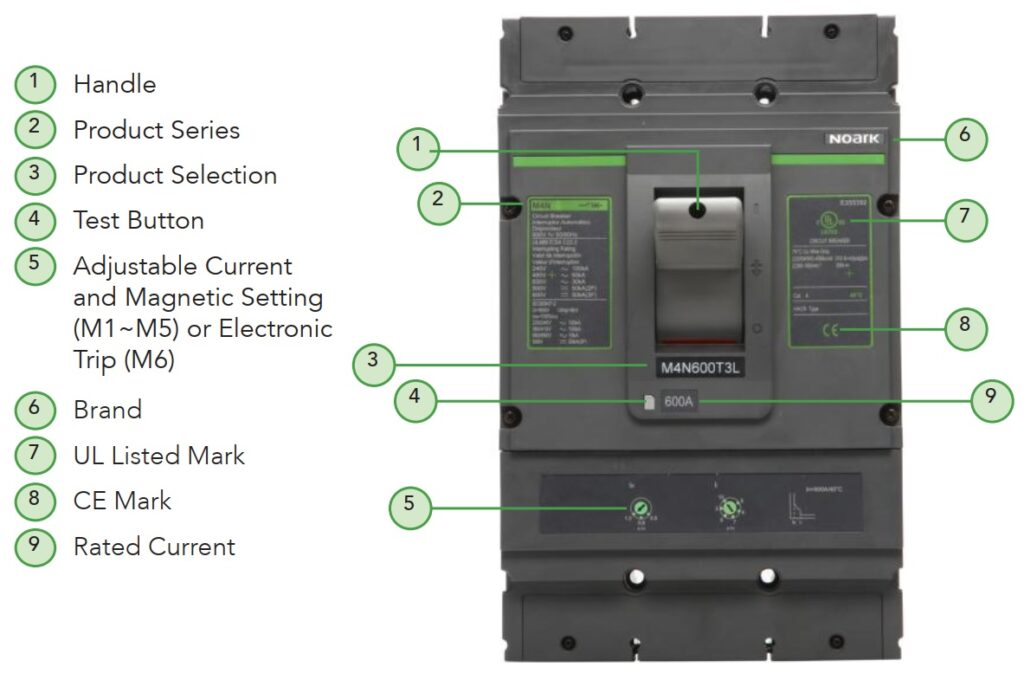Molded Case Circuit Breakers Molded Case Circuit Breakers
March 1st, 2024
Molded Case Circuit Breakers, or MCCBs, are essential protective devices in an electrical system. They are designed to protect electrical circuits from damage caused by overloads, short circuits, or fault currents. They are called “molded case” because they come in a compact, rigid structure made from insulating material, typically plastic, which encloses the internal mechanisms.
MCCBs function by interrupting current flow when faults are detected. They employ thermal and magnetic mechanisms: the thermal part handles overloads by using a bimetallic strip that heats and bends to break the circuit, while the magnetic part deals with short circuits through a solenoid that trips the breaker instantly when high current is detected. These mechanisms ensure that circuits are protected from damage and fire hazards caused by overloading and short circuits.

MCCBs stand out from traditional breakers that you might find in a residential panel due to their ability to handle higher current ratings and adjustable trip settings. Unlike smaller breakers, which typically operate below 100 amps, MCCBs can handle higher currents with interrupting ratings between 10,000 and 200,000 amps. This capacity allows them to be adjusted to cater to both low and high current applications. Additionally, MCCBs are more advanced than miniature circuit breakers (MCBs) and are equipped with more sophisticated tripping mechanisms compared to traditional thermal-magnetic breakers. There are other circuit breaker types suitable for extremely high voltage and current applications, such as those found in industrial environments, large commercial power systems, or utility networks, which include Air Circuit Breakers (ACBs), Vacuum Circuit Breakers (VCBs), and SF6 (Sulfur Hexafluoride) Circuit Breakers.
MCCBs are typically used in settings that require handling high currents, such as industrial machinery, motors, welding machines, generators, and electric feeders. Their adjustable trip settings enable them to accommodate different inrush currents by allowing necessary delays, designed to distinguish between temporary overload conditions, like the start-up of a motor, and actual persistent overloads that could harm the circuit. This ensures that motors and other machinery are effectively protected without causing the MCCB to trip during normal inrush scenarios.
MCCBs are essential for modern electrical safety, offering versatile applications and protection against a variety of electrical faults. Their design caters to both industrial and some higher-capacity residential settings, making them an indispensable tool in the protection and management of electrical systems.